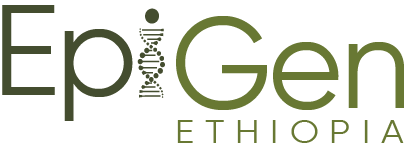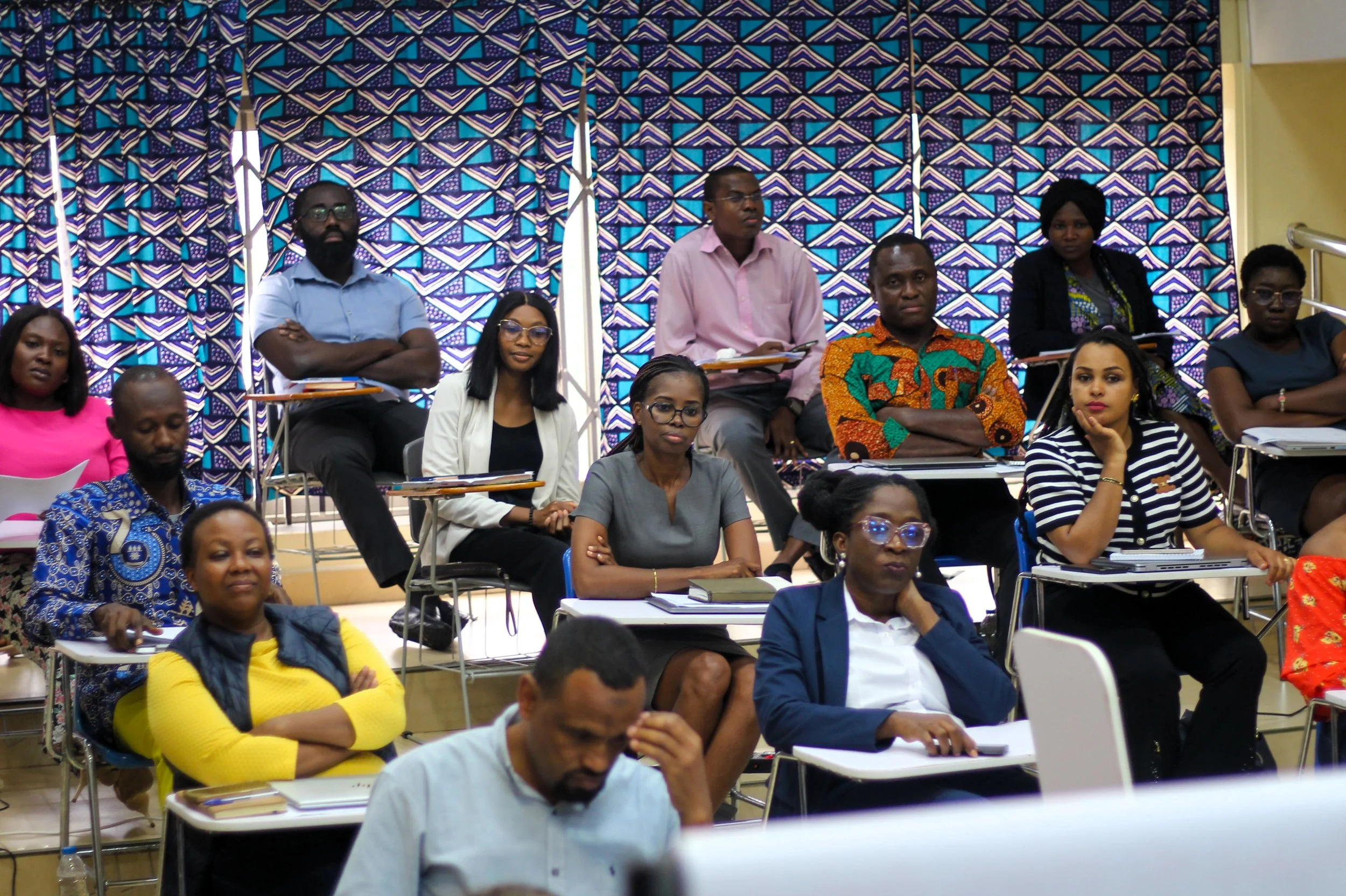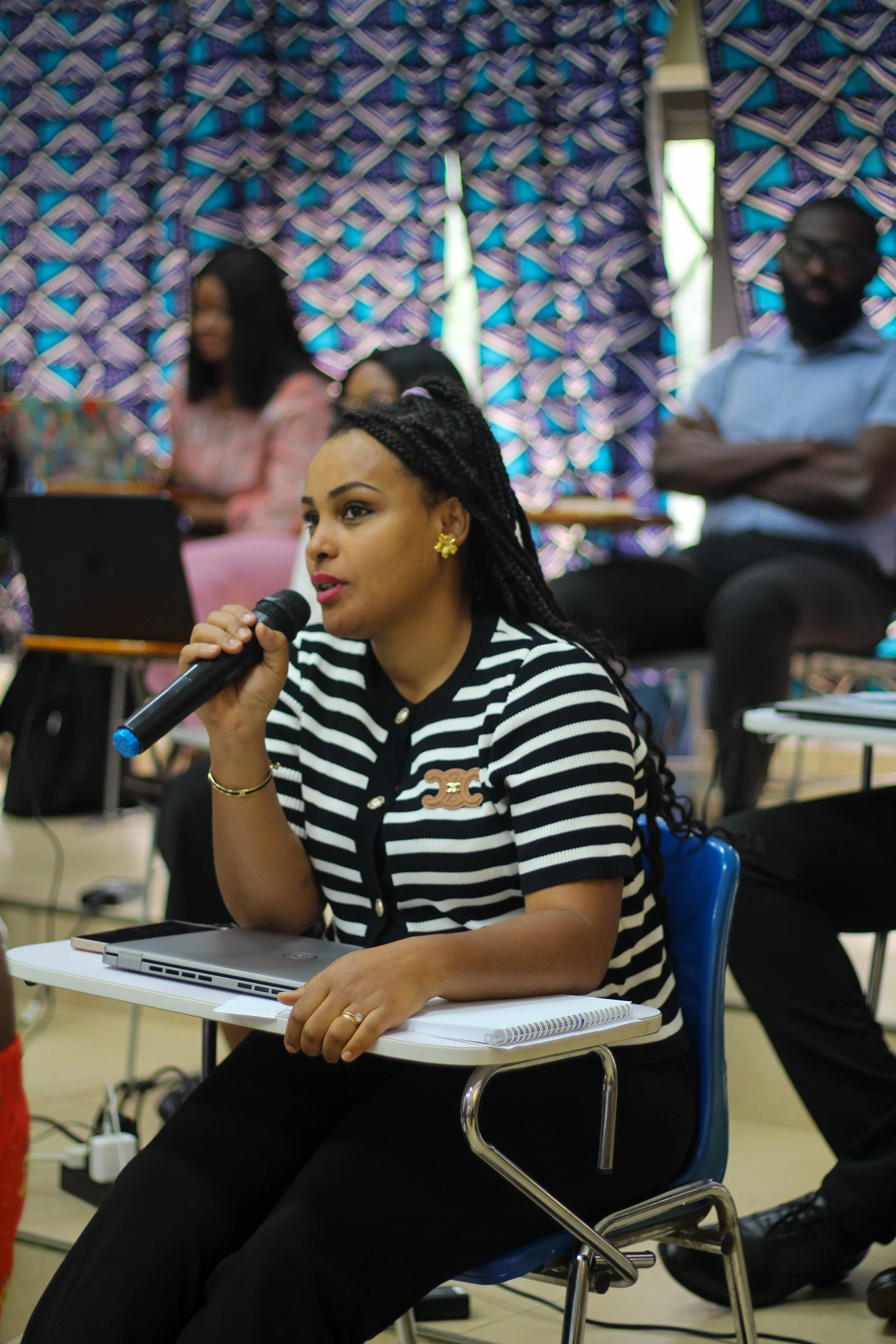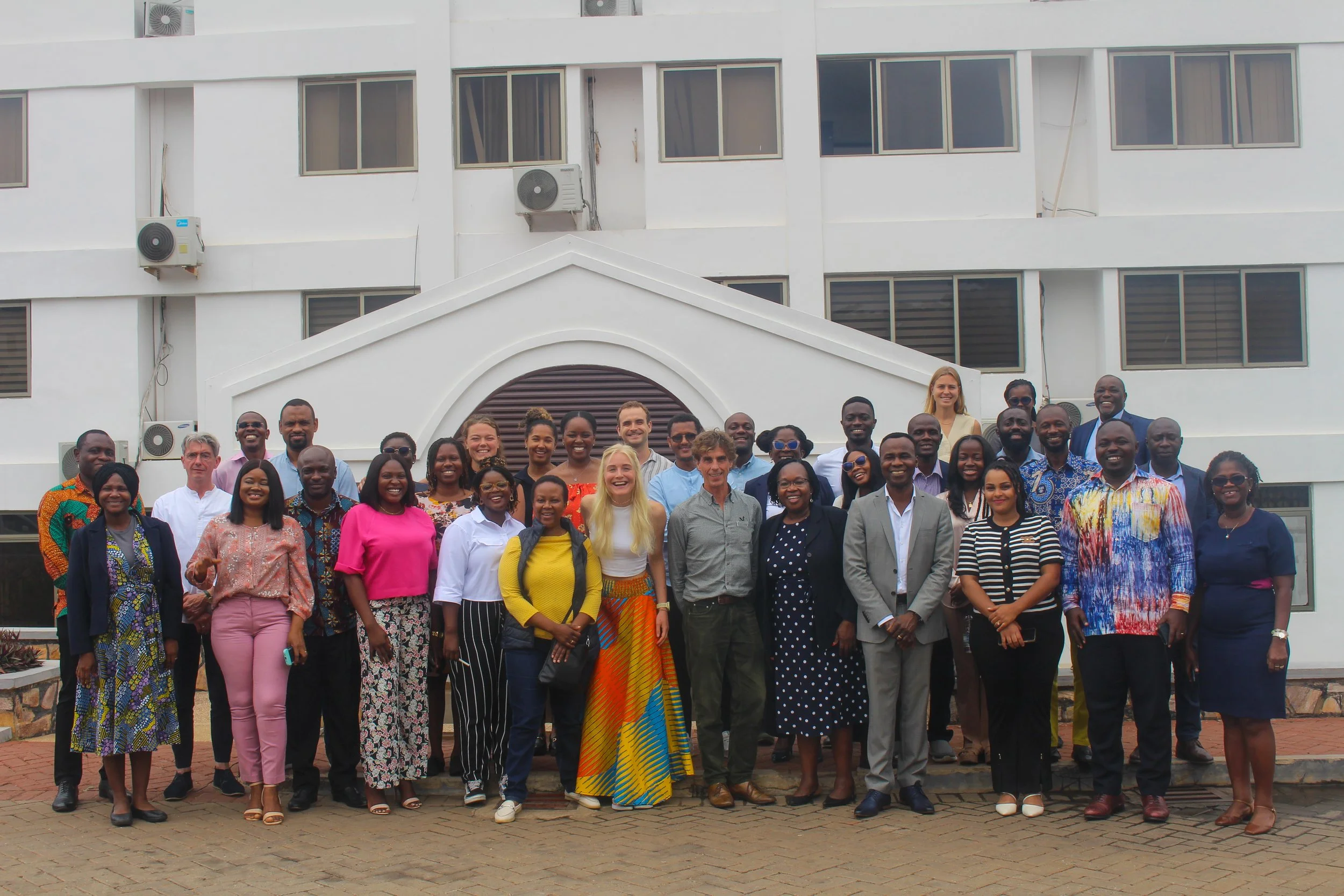PhD students learn ‘art of academic writing’ in Ghana
Two EpiGen Ethiopia PhD students spent a week in Ghana at the end of July 2025 to attend a summer school dedicated to developing their academic writing skills.
Rozina Tariku and Muhammed Ahmed joined 22 other researchers – fellow PhD students, postdoctoral researchers, and physician postgraduates or faculty members with research ambitions – to increase their writing proficiency in reporting scientific research and developing grant proposals. The University of Ghana and Amsterdam University Medical Center (with the Center’s Dr. Erik Beune as lead organizer) put together the five-day intensive workshop, with AIGHD Senior Fellows Prof. Charles Agyemang and Dr. Wieger Voskuijl playing prominent roles.
The students’ trip was supported by the EpiGen project, which is funded by the Global Health EDCTP3 research partnership.
Rozina Tariku. The workshop started with an engaging discussion on the importance and major barriers of scientific writing in the early stages of a research career. Learning how to write a scientific paper, including valuable insights into ethical considerations in publishing, was very inspiring for me.
Throughout the week, sessions were carefully designed to address common barriers to effective scientific writing. The hands-on components of the training were particularly impactful, covering tools and techniques in:
· Systematic review and meta-analysis
· SPSS software for quantitative analysis
· ATLAS.ti for qualitative data analysis
Group activities fostered peer learning and networking, which made the experience even more rewarding. Overall, the workshop was timely, relevant, and exceptionally well-organized – a valuable stepping stone in strengthening my academic writing and research communication skills.
Muhammed Ahmed. The event enhanced my understanding of scientific paper writing strategies, as well as the frameworks and evaluation approaches of reputable journals.
I learned that your scientific writing skills flourish when you consistently share scientific findings. Also, it inspired me to read more about scientific writing to better understand approaches to transmit your ideas/results in the clearest way possible.
This workshop significantly sharpened my academic writing abilities and provided a rich platform for intercultural collaboration. Thanks to the facilitators, who incorporated the participatory approach for further skill sharing among the participants, I experienced wonderful moments of increased insight among us.





